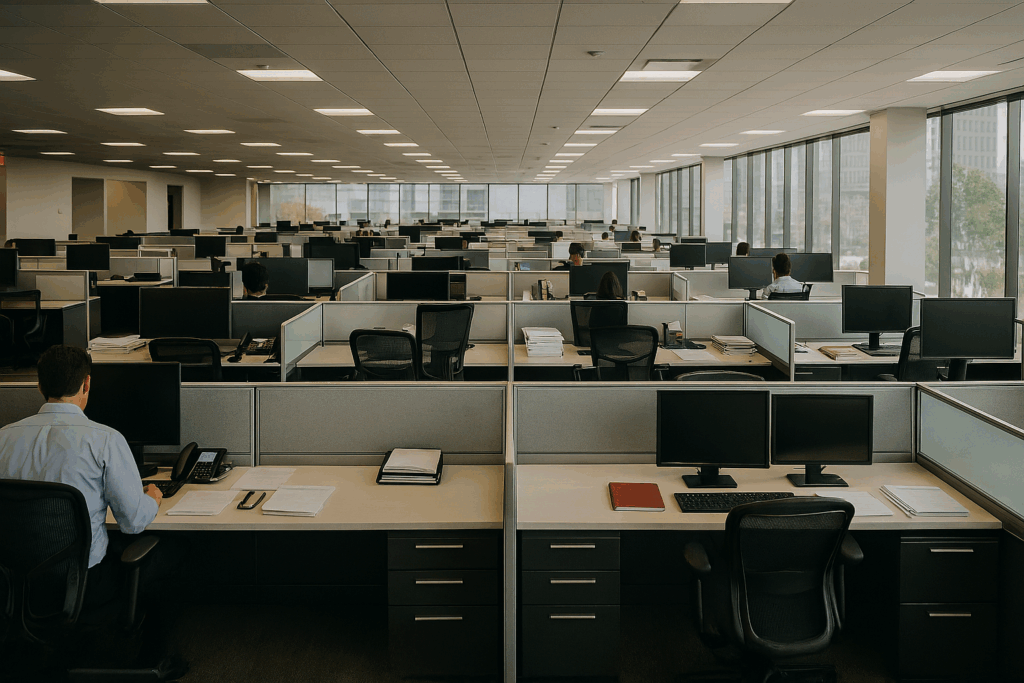
In a parallel world, fear is gripping the nation as the economy teeters on the brink of another devastating depression, just years after the COVID-19 pandemic brought the world to its knees. Experts warn that the fragile recovery is collapsing under the weight of mass layoffs, soaring inflation, and a looming global recession.
The past six months have witnessed a catastrophic shedding of jobs, with tens of thousands of employees across major corporations losing their positions. Tech giants, once seen as recession-proof, have been particularly hard hit, announcing sweeping cuts that have sent shockwaves through the industry. Auto manufacturers, facing supply chain disruptions and declining consumer confidence, have also implemented significant layoffs. The retail sector, already struggling with shifting consumer habits, is facing further contraction.
“We’re witnessing a perfect storm,” stated Dr. Eleanor Vance, chief economist at the National Economic Research Institute. “The initial post-pandemic recovery was uneven and built on shaky foundations. Now, with inflation remaining stubbornly high, interest rates climbing, and consumer spending plummeting, we’re seeing a rapid unraveling.”
The unemployment rate, which had fallen to a relatively healthy level following the pandemic, is now expected to surge past 10% in the coming months. This second wave of job losses is proving particularly devastating, as many individuals have not fully recovered financially from the initial economic downturn. Food banks are reporting a significant increase in demand, and housing insecurity is on the rise.
The government’s response has been widely criticized as insufficient. While some fiscal measures have been proposed, the political landscape remains deeply divided, hindering the implementation of bold and decisive action. Critics argue that the current administration is prioritizing short-term political gains over long-term economic stability.
“This isn’t just another recession; this is a potential repeat of the Great Depression,” warns Professor David Chen, a leading economic historian at Columbia University. “The scale of the job losses, coupled with the lack of effective government intervention, is deeply alarming.”
The international community is also bracing for the impact. The interconnected nature of the global economy means that a second US depression would have far-reaching consequences, triggering a chain reaction of economic instability across the globe.
The coming months will be critical. The failure to implement swift and effective economic policies could plunge the nation – and the world – into a prolonged period of economic hardship unlike anything seen in generations. The question facing policymakers and citizens alike is whether the lessons learned from the previous crisis will be applied effectively, or if history will repeat itself.